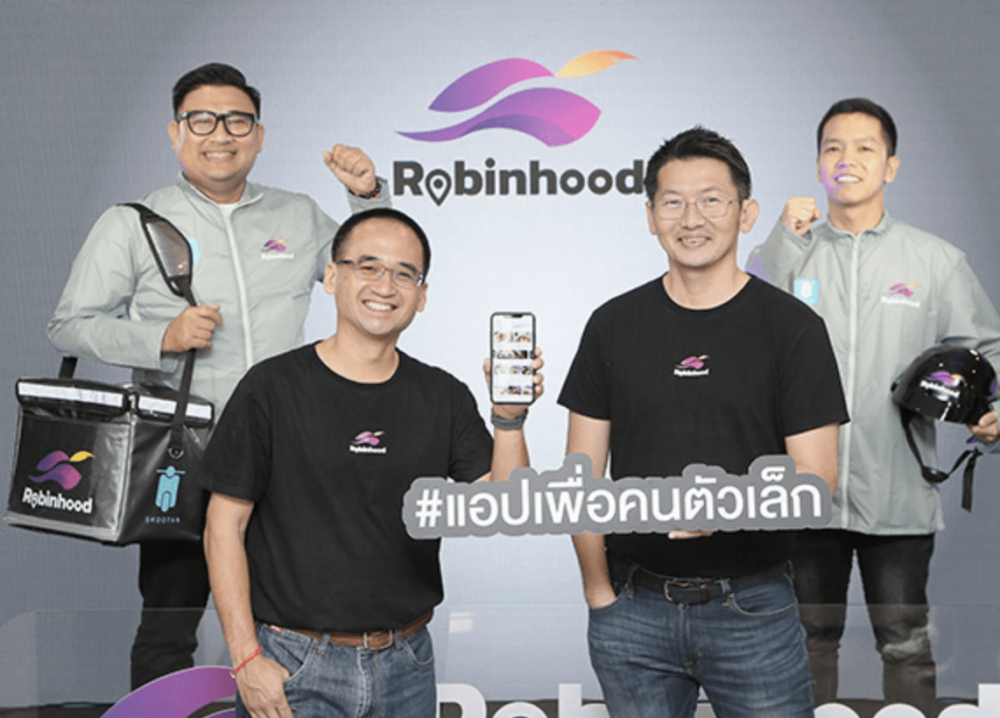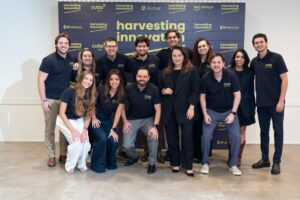Thai financial services provider Siam Commercial Bank (SCB) has beta-launched a food delivery service, putting it head-to-head with a growing number of on-demand players in the Southeast Asian country – including regional ‘super apps’ Gojek and Grab.
Named Robinhood, SCB’s platform was developed in-house by Purple Ventures, part of the bank’s innovation and venturing unit SCB 10X. The bank — which, as of last year, was Thailand’s biggest in terms of total assets — describes it as an “alternative food delivery [app] for the small guys.” It combines a consumer-facing app that enables on-demand meal orders with SCB’s cashless digital payments infrastructure — including its SCB EASY mobile wallet — allowing users, drivers, and merchants to transact money completely online.
The app is now undergoing a pilot phase in the Greater Bangkok region, with a full nationwide launch slated for early in 2021.
SCB has committed to invest 450 million baht ($14.4 million) into Robinhood over the next three years, with the bank’s senior executive vice president Thana Thienachariya telling the Bangkok Post that it expects the venture to make a loss during the period while it seeks to aggressively build market share.
“For the initial stage, the bank plans to offer the service without concern for profit. After the service can build up customer engagement, the bank can offer them financial services and products later, especially digital loans,” he said.
As alluded to by its name, Robinhood claims to compensate food vendors and delivery drivers more fairly than rival services operating in Thailand. These marketplace apps — which allow users to order prepared food from restaurants, cafes, and hawkers and have it delivered to their doorstep, on demand — generate income by taking a cut of the independent merchants’ earnings that have been made through their platforms.
Robinhood’s business model is much the same. However, where it claims to be different is that it doesn’t charge merchants gross profit fees — which the Post reports to be between 30-35%, typically — while also settling sales made through its platform on an hourly basis. This way, the earnings arrive in vendors’ accounts within an hour of each delivery being completed, SCB said in a statement.
“This boosts merchants’ liquidity to help them with their next-day operations during the current [Covid-induced] economic crisis.,” the bank added.
As for delivery drivers, they can earn on the platform “without having to advance their own cash for customer food orders […] Customers can directly pay merchants via direct debit on the SCB EASY app, or [using] credit, debit, and cash cards.”
Robinhood already has 16,000 merchants and 10,000 drivers signed up to its platform, with an objective of having 30,000 and 15,000, respectively, on board by the end of this year. It expects to be handling 20,000 meal deliveries per day over the same timeframe.
The app is up against plenty of competition. Regional ride-hailing giants Gojek and Grab dominate Thailand’s on-demand food delivery scene. Jakarta-based Gojek has received investment from SCB, though there is no sign of collaboration on food delivery. Singapore-based Grab is backed by two other Thai banks – Kasikornbank and Krungsri. Other investors, including SoftBank, are reported to be pushing for a merger between the two ‘super apps.’
Other established food-delivery players in Thailand include Foodpanda — owned by Germany’s Delivery Hero — and Line Man Wongnai, the result of a merger earlier this year between Japanese tech firm Line‘s food delivery service in the country and a local restaurant review portal. Cloud kitchen and meal delivery app Dahmakan — the first Malaysian startup to join Y Combinator — expanded into Thailand after acquiring a local rival in 2018.
Robinhood is hoping to take advantage of increasingly rapid adoption of cashless payment methods among Thai consumers. Research by aCommerce found that ‘cash on delivery’ remained the most common way of paying for online purchases in the kingdom between 2016 and 2018. However, according to JPMorgan, cash has since been overtaken by digital wallets, bank transfers, and card payments, with its share among payment methods expected to decline to 12% by next year.
Got a news tip? Email me at [email protected]





